Rate of spread of COVID-19 increases in Pakistan after relaxation of lockdown
Xinhua
1592613878000
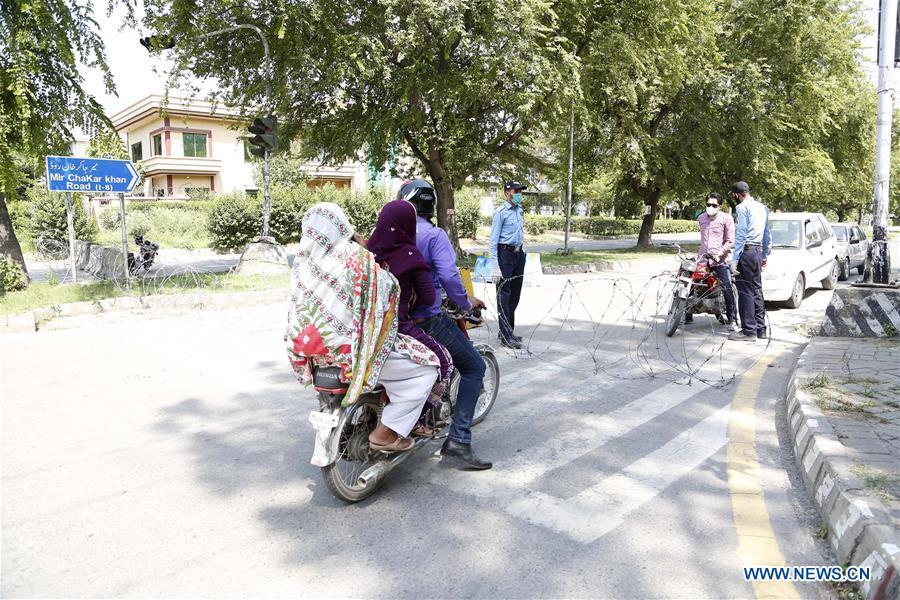
Police officers stop motorcyclists and vehicles near a sealed street at a residential sector after some people tested positive for COVID-19 in Islamabad, capital of Pakistan, on June 19, 2020. The Pakistani government started to ease the lockdown from May 9, aiming at mitigating the influence on the labor class and the poor in the country. The WHO said that after the relaxation of the lockdown, the rate of spread of COVID-19 increased in Pakistan, adding that the country doesn't meet any prerequisite for lifting lockdown restrictions, according to the reports. (Photos: Xinhua/Ahmad Kamal)
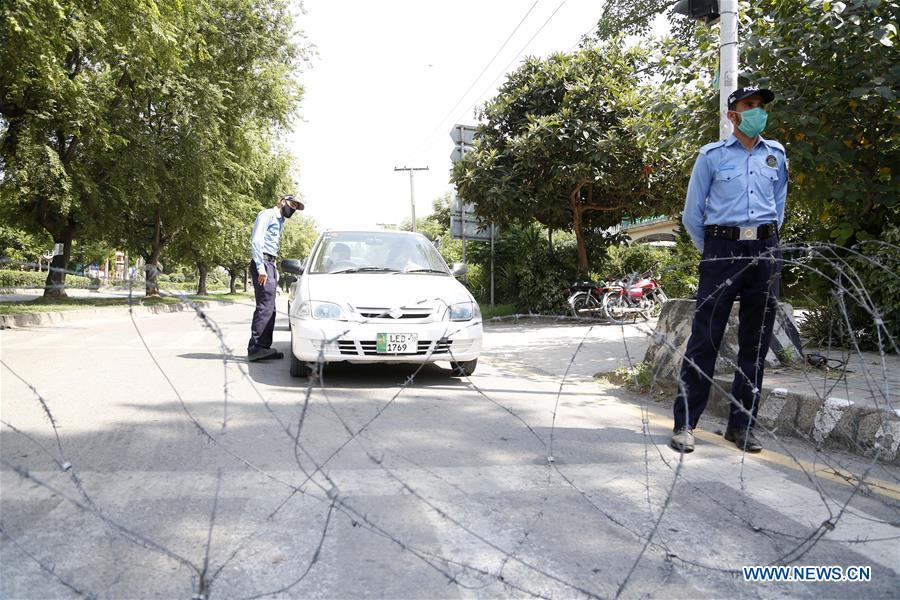
Police officers stand guard near a sealed street at a residential sector after some people tested positive for COVID-19 in Islamabad, capital of Pakistan, on June 19, 2020. The Pakistani government started to ease the lockdown from May 9, aiming at mitigating the influence on the labor class and the poor in the country. The WHO said that after the relaxation of the lockdown, the rate of spread of COVID-19 increased in Pakistan, adding that the country doesn't meet any prerequisite for lifting lockdown restrictions, according to the reports.
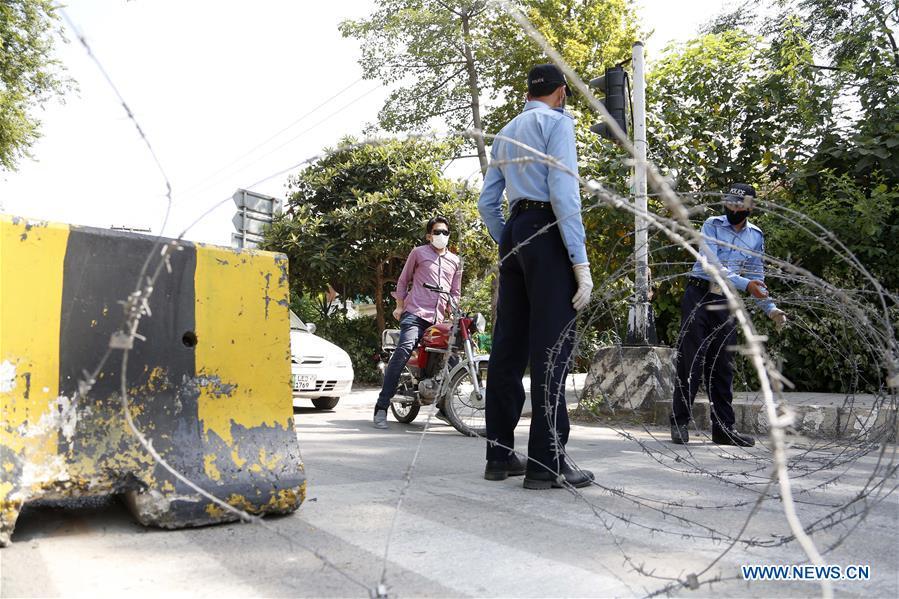
Police officers stop a motorcyclist near a sealed street at a residential sector after some people tested positive for COVID-19 in Islamabad, capital of Pakistan, on June 19, 2020. The Pakistani government started to ease the lockdown from May 9, aiming at mitigating the influence on the labor class and the poor in the country. The WHO said that after the relaxation of the lockdown, the rate of spread of COVID-19 increased in Pakistan, adding that the country doesn't meet any prerequisite for lifting lockdown restrictions, according to the reports.
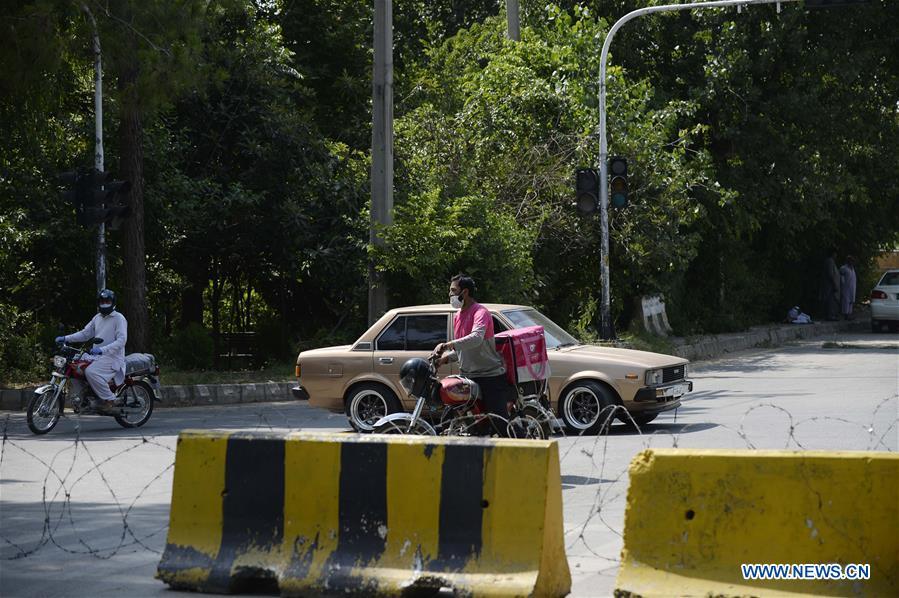
A vehicle turns back near a sealed street at a residential sector after some people tested positive for COVID-19 in Islamabad, capital of Pakistan, on June 19, 2020. The Pakistani government started to ease the lockdown from May 9, aiming at mitigating the influence on the labor class and the poor in the country. The WHO said that after the relaxation of the lockdown, the rate of spread of COVID-19 increased in Pakistan, adding that the country doesn't meet any prerequisite for lifting lockdown restrictions, according to the reports.
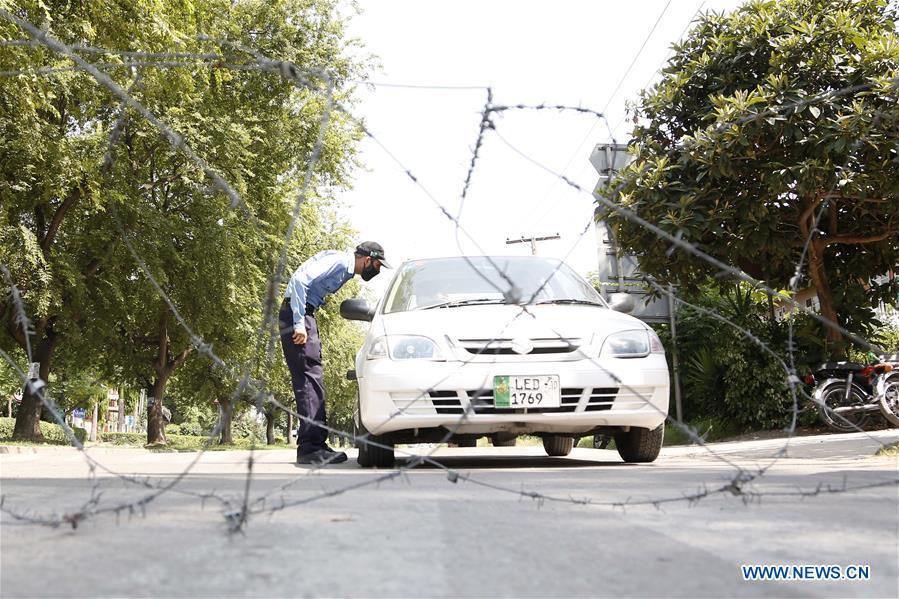
A police officer stops a car near a sealed street at a residential sector after some people tested positive for COVID-19 in Islamabad, capital of Pakistan, on June 19, 2020. The Pakistani government started to ease the lockdown from May 9, aiming at mitigating the influence on the labor class and the poor in the country. The WHO said that after the relaxation of the lockdown, the rate of spread of COVID-19 increased in Pakistan, adding that the country doesn't meet any prerequisite for lifting lockdown restrictions, according to the reports.


